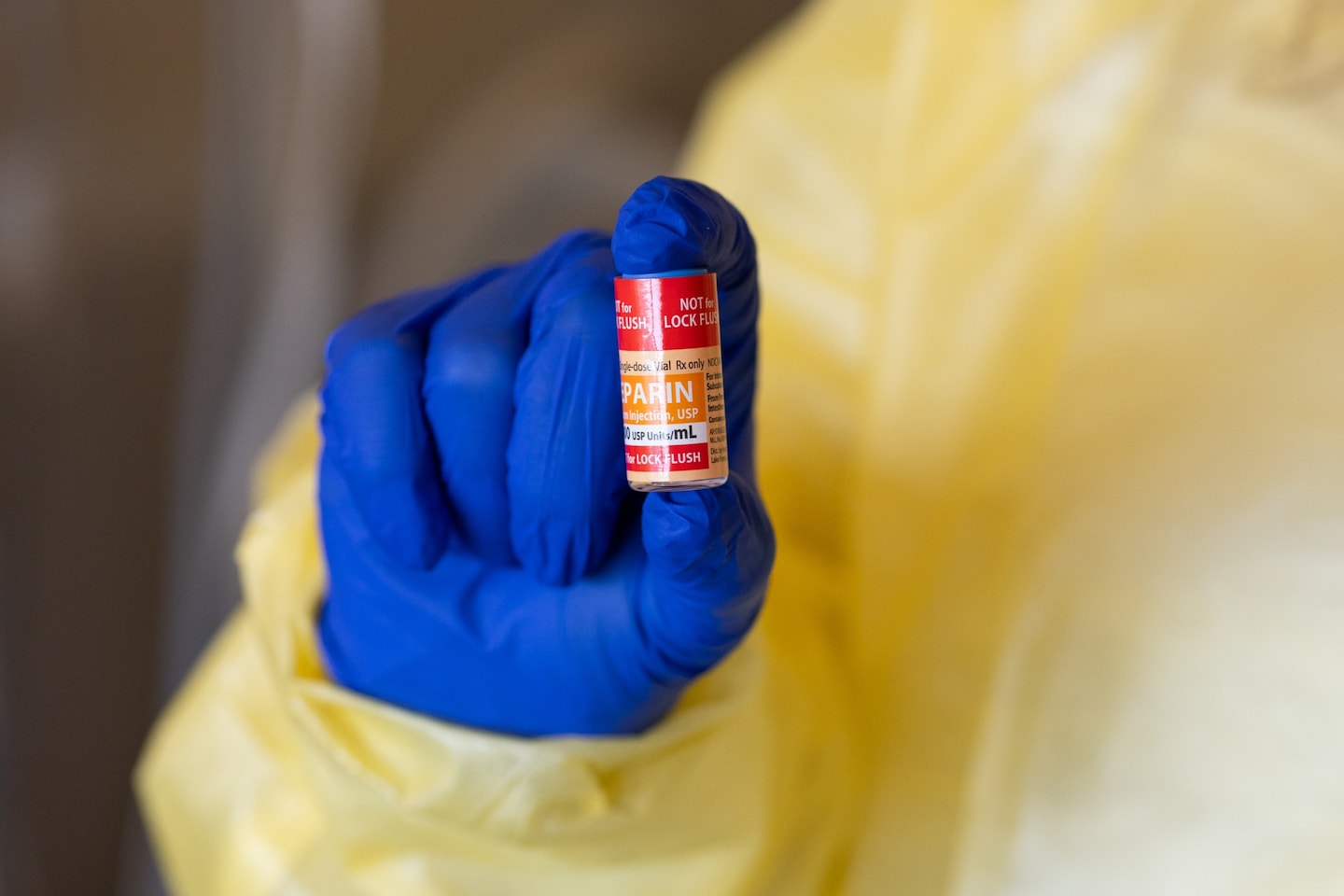In Baltimore, Wanda Crowell relies on daily infusions of heparin, an essential anticoagulant, at Johns Hopkins Hospital. For patients like Crowell, who cannot take oral medications, heparin is indispensable. The drug prevents life-threatening blood clots and ensures the functionality of her central line, which delivers necessary nutrients.
President Donald Trump’s tariff campaign, primarily targeting industries like steel and electronics, now threatens medications whose active pharmaceutical ingredients are predominantly sourced from China and India. The potential impact on generic drugs like heparin is concerning along the supply chain. Health experts warn that tariffs could disrupt pharmaceutical supply chains, increase costs, and strain the healthcare system.
The U.S. lacks the infrastructure to meet its heparin demand domestically. Building self-sufficiency would require significant investment in processing facilities, reliable animal tissue sources, and regulatory support. China dominates the global heparin market due to its large pig population and cost-efficient processing systems. While other countries produce raw materials, China remains the preferred source.
Past events highlight the risks of supply disruptions. In 2008, a pig disease in China caused a heparin shortage, leading suppliers to adulterate the drug, resulting in 80 deaths and hundreds of adverse reactions in the U.S. During the coronavirus pandemic, supply chain disruptions threatened access to critical medications. China is also a leading supplier of active ingredients for antibiotics and pain relievers.
Manufacturers cannot simply raise prices due to pricing laws governing generic drugs. The Hatch-Waxman Act of 1984 and the Medicare Prescription Drug, Improvement and Modernization Act of 2003 limit price increases and reimbursement amounts. Experts worry that producers may cut corners or exit the market altogether. Drugs with small profit margins are particularly vulnerable.
While health economists and pharmacists do not anticipate an immediate heparin shortage, any supply squeeze could force hospitals to explore alternative anticoagulation therapies. Alternatives like warfarin are less effective and require frequent monitoring. Heparin works quickly and is easily reversible. In emergencies, hospital pharmacists could produce heparin bags for intravenous drips, though commercial products offer longer shelf lives and efficiency. Despite potential price increases, hospitals would likely continue purchasing premade heparin supplies.
— new from The Washington Post
